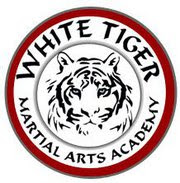The two styles of Ninpo Taijutsu that exist, the Bujinkan and the Genbukan, draw their methods from the 9 existing Ninja ryu, which I have listed elsewhere.
They form a "book" called the Ten Chi Nin Ryaku No Maki, which means the Book of Heaven, Earth and Man.
The first part, the core of modern Ninja training, is taken from the Book of Heaven, itself based on the core syllabus of the Gyokko Ryu.
There are two main training methods or "kata":
the Sanshin no kata - set of five waza,
the Kihon Happo - set of 8 techniques - 3 striking and 3 grappling.
Here we practice a modified Kihon Happo based on both the sanshin kata and the koshi kihon sanpo, the 3 striking waza of the gyokko ryu.
These are defences and responses against 4 jodan attacks, then 4 gedan attacks.
We then practice the 5 grappling responses to a collar grab called the torite kihon goho. They consist of 3 wristlocks, an elbow lock, and a throw. They are the basics for ninja grappling defences.
Another way to categorise Taijutsu is to seperate it into it's 3 major skills:
taihenjutsu - body movement
dakentaijutsu - striking - kempo
jutaijutsu - grappling - jujutsu, chin na
kobudo, weapons, is done with
body movement, the same stances and footwork
striking, including cutting for blades
grappling, lox and chokes with stix
This first and major book teaches all the skills that are the foundation of Ninjutsu
the Chi Earth and Jin Man books contain techniques, kempo, grappling, weapons, inton, goton, that are all based on the kihon of the Ten Ryaku
Taihenjutsu - rolling, walking, jumping
Kihon Happo
Sanshin
Kamae - stances
Muto dori - unarmed sword defence
Jurropoken - sixteen striking tools - "Ninja Kempo"
Ten Ryaku no Maki (Heavenly Strategies Book)
Taihenjutsu Ukemi Gata (rolls, breakfalls, leaping, moving)
•Four directional rolling & diving
•Four directional breakfalls & drops
•Four directional leaping
•Body evasion movements
•Walking techniques
Kamae (postures, attitudes)
•Eight postures
Hoken Juroppo (striking)
•Sixteen body weapons
Sanshin no Kata (movement)
•Five integration movement forms
Kihon Happo Kata ( eight foundational combat techniques)
•Three striking methods
•Five grappling methods
Muto Dori Gata (Shinken Gata Taihenjutsu) (sword evasion)
•Three sword evasion methods
Chi Ryaku no Maki (Earthly Strategies Book)
Hajutsu Kyuho ( nine grab escapes & breaking out methods)
•Nine escaping methods from grabs, throws, kicks & punches
Gyaku Waza (reversal techniques)
•Nine methods of arm/wrist manipulating
Nage Waza (throwing techniques)
•Nine throwing and toppling methods
Shime Waza (choking techniques)
•Five methods of strangulation
Jin Ryaku no Maki (Humanly Strategy Book)
Suwari Gata (sitting forms)
•Three forms of defending from seated posture
Katate Dori (counters to single hand grabs)
•Five forms of countering one hand grabs or grabs with one hand
Ryote Dori (counters to two hand grabs)
•Seven forms of countering two handed grabs
Haibu Yori (defending the rear)
•Five counters to attacks from behind
Tsuki Uchi (counters against fist attacks)
•Nine forms against punching attacks
Keri ni Taisuru Uke (counters against kicks)
•Five forms against kicking attacks
Tsuki to Keri ni Taisuku Waza (counters to punch & kick combinations)
•Five forms against punch/kick combo attacks
Nage Kaeshi (throw counters)
•Eight counters to throws - also defined as "returning the throw"
Muto Dori Gata (unarmed against a blade)
•One form unarmed against a blade attack
Zanto Tonko no Kata (escaping forms)
•Seven forms for escaping variety of attacks
Ten involves the 4 dimensions of combat, movement with the opponent, distance and timing, placing of your own weapons
Chi deals with the opponent's body, targets, leverage, weak points, reaction
Jin puts them together in applicable combat techniques
TenChiJin is like the 3 legs of a tripod
One must master TenChiJin to achieve the rank of Shidoshi, a teacher of Ninjutsu
This thread on TenChiJin was posted in August 2009, at the first Summer Camp, where we introduced NINPO training methods with the modified Kihon Happo
In 2019 we are not so focussed on TenChiJin, as we look at the schools of GYOKKO Ryu and KOTO is specific details, at the levels for each school
The TEN and CHI books we cover anyway in our progressive training
The JIN Maki is based on the first 2 levels of the 6 main schools, as well as the SANTO escape forms
